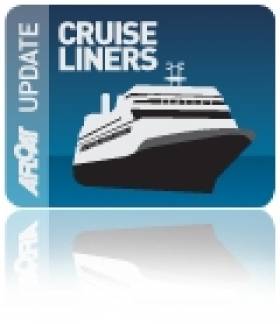Displaying items by tag: P&O 175th anniversary
Ocean Liner Society: London International Ship Show
#LONDON SHIP SHOW - The 2012 London International Ship Show, will be held on Saturday 27th October at the Royal National Hotel, Bloomsbury, London, writes Jehan Ashmore.
The show organised by the Ocean Liner Society, will have exhibitors stands in the Galleon Suite of the central city hotel. Among the exhibitors will be maritime booksellers, maritime artists, maritime model makers, traders in maritime memorabilia and ephemera postcards.
In addition there will be a Talks Programme held off the main exhibition hall. The theme for the lectures is P&O, which this year celebrates its 175th anniversary. The first speaker, Ian Gibb, will provide a personal link with the cruise era of the line. A popular Master and Commodore and a highly distinguished merchant mariner he will be known to a generation of cruise passengers.
Bringing the story up to the present, P&O's Operations and PR Departments will give an inside view of this year's spectacular 'Grand Event' from Southampton, where a seven-strong cruiseship fleet included Arcadia (2005/83,781grt) as previously reported on Afloat.ie In the report there is a photo link to the maritime spectacle. The Arcadia is the third vessel seen from the front as she sailed down Solent waters heading for her first port of call that was to be Dublin Port.
For further details about the London Ship Show (opening hours 10am-5pm), click HERE, noting admission is £5 for non- members of the society and £3 for members.
#P&O 175th ANNIVERSARY – The cruiseship Arcadia (2005/83,781grt) sailed into Dublin Port after an overnight passage from Southampton, where P&O celebrated their 175th anniversary on Tuesday with a spectacular parade of the fleet billed as the 'Grand Event', writes Jehan Ashmore.
Dublin Port is the first port of call since the 2,388 passenger (maximum) capacity Arcadia departed her homeport on a 14-night adult-only round trip cruise to Iceland. She and six cruiseships of the P&O Cruise fleet formed the impressive sail past down the Solent to where they each went their separate ways on cruising intineries.
The Peninsular and Oriental Steam Navigation Company, better known throughout the world as P&O was established in 1837. The famous company's colourful house-flag is flown on the P&O Cruises fleet and P&O Ferries operating out of the UK. The flag is also depicted as the funnel colours of the ferry fleet and incorporates the royal colours of Spain (red and gold) and Portugal (blue and white) which relate to the older traditional colours representing the monarchy.
In 2005 P&O was sold to Dubai based DP World for £3.3 billion, which operates P&O Ferries, while the cruise division was sold off to Carnival UK, a subsidiary of the US owned Carnival Corporation which among its many companies includes Cunard Line. The Arcadia and her fleetmates are under the P&O Cruise brand and the cruiseships also fly the house-flag under license.
The origins of P&O though can be traced as far back to 1815 when Brodie McGhie Wilcox engaged Arthur Anderson to become a ship clerk in his brokerage business in London. The Lime Street based brokerage initially chartered vessels and the business grew so by 1823 Anderson was made a partner to form Wilcox and Anderson. They embarked on a sail-cargo service from London to the Iberian Peninsula.
In 1835 the timber-built passenger and cargoship paddle steamer William Fawcett was chartered from the Dublin and London Steam Packet Company. The 206-tonne vessel gave a top speed of 10 knots, noting that she had two sailing masts fore and aft of the steamer's funnel.
William Fawcett is regarded to be the first ship in the P&O fleet, the steamer with the Irish connection carried the government contract to carry 'mails' to Iberia. The company secured more contracts and rapid expansion to the Orient, where the house-flag reached India, Ceylon, Penang, Singapore, Hong Kong and Australia. This led to many ships built and not just confined to cargoships, notably the liners with passengers travelling Port-Out and Starboard-Home...how POSH indeed!
It was fitting to see Arcadia arrive into a flat-calm Dublin Bay as she entered from the southern approaches off Dalkey Island, where paddle-steamers such as William Fawcett would of sailed past heading for London. Her modern short-sea successor in the form of P&O Ferries ro-pax European Endeavour (2000/ 22,125grt) was also arriving into the bay off the Baily lighthouse from Liverpool.
Arcadia cost £200m to build and when the vessel was laid down at the Fincantieri Cant. Nav. Italiani SpA shipyard in Monfalcone, she was originally the Queen Victoria for Cunard Line. It was however decided that the newbuild would be renamed Arcadia as she was transferred by Carnival to the P&O Cruises brand and given a traditional name.
To read more about the company, the ships and much more visit www.poheritage.com































































